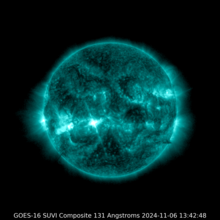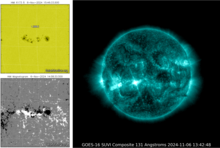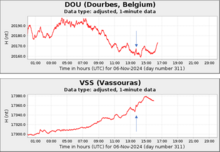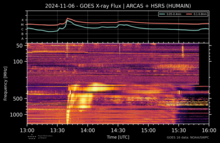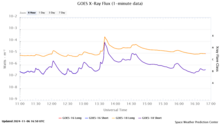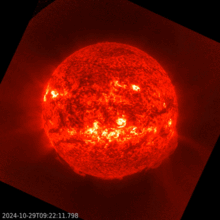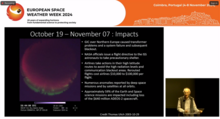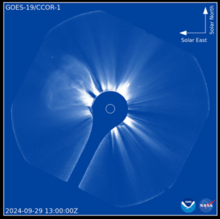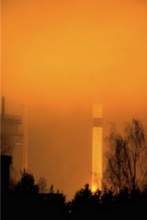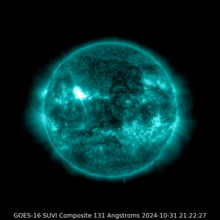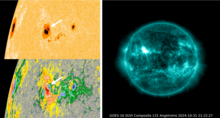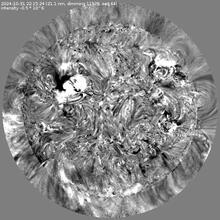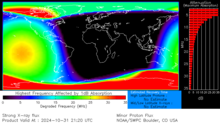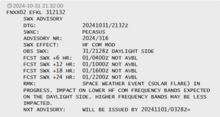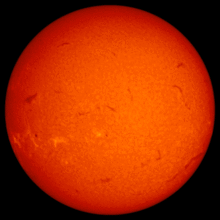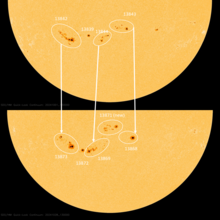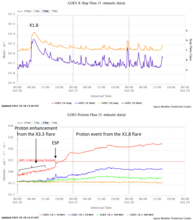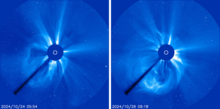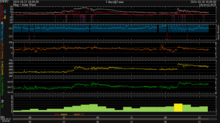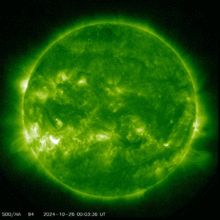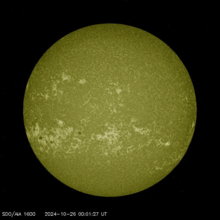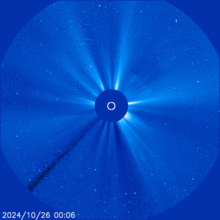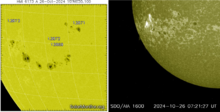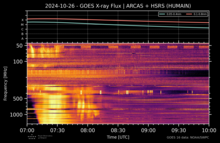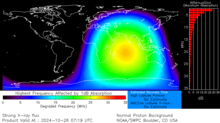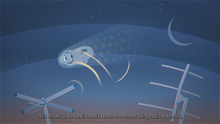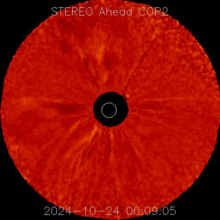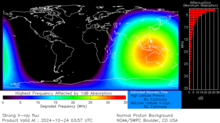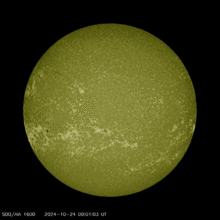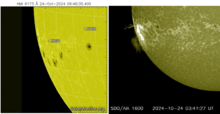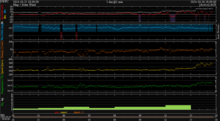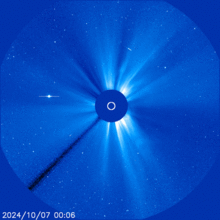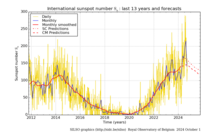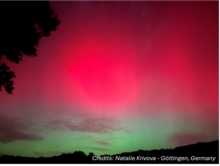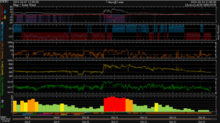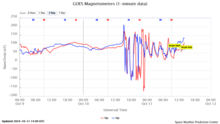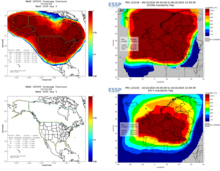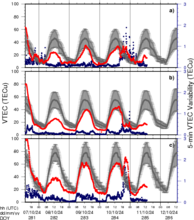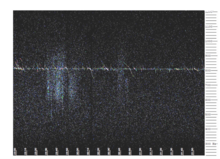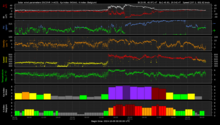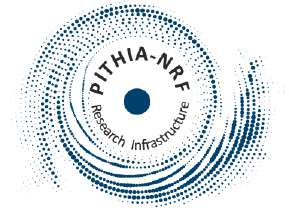news
Submitted on 2024-11-06
Another X-class flare, another source region. NOAA 3883 produced a X2.3 flare on 6 November.
Submitted on 2024-11-04
ESWW 2024, a prominence eruption, first images of CCOR, and PROBA2's 15th anniversary.
Submitted on 2024-11-01
Another X-class flare, and once again from a different region. NOAA 3878 was the source of an X2.0 flare on 31 October.
Submitted on 2024-10-29
The solar storms of 24 and 26 October are compared from the initial X-class flare to the geomagnetic disturbance that resulted from the associated coronal mass ejection.
Submitted on 2024-10-26
Another X-class flare, but from a different region. The associated coronal mass ejection may deliver a glancing blow on 28 October.
Submitted on 2024-10-25
The BRAMS team produced a short movie that explains the difference between meteoroids, meteors and meteorites, radio observations of meteors, BRAMS, and what you see in a spectrogram.
Submitted on 2024-10-24
The Sun produced a strong X3.3 flare on 24 October. The associated coronal mass ejection, expected to deliver a glancing blow, actually arrived on 26 October at 15:35UTC (DSCOVR). A minor geomagnetic storm is expected. ***UPDATED (2)***
Submitted on 2024-10-21
The STCE's SC25 Tracking page has been updated to reflect the latest evolution of some critical space weather parameters for the ongoing solar cycle 25 (SC25).
Submitted on 2024-10-15
The impact of the severe geomagnetic storm of 10-11 October was felt in various domains.
Submitted on 2024-10-12
NL - FR - EN
The magnetic situation returned to normal with values between 1 and 3 on a scale between 0 and 9.
Pages
Zircon - This is a contributing Drupal Theme
Design by
WeebPal.

